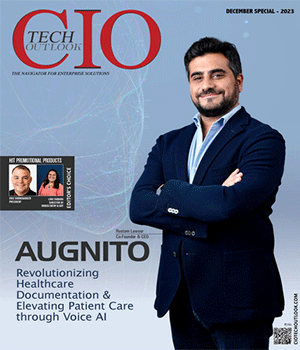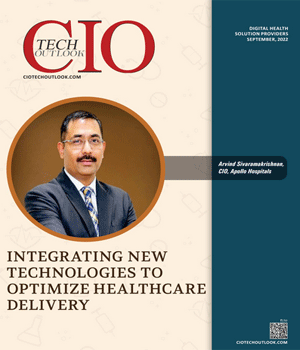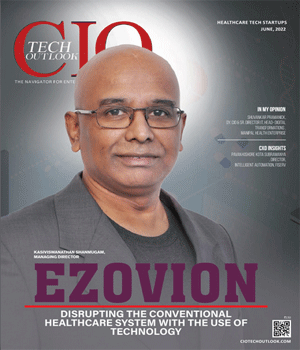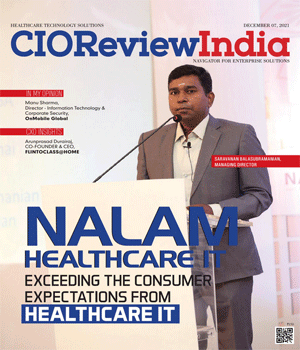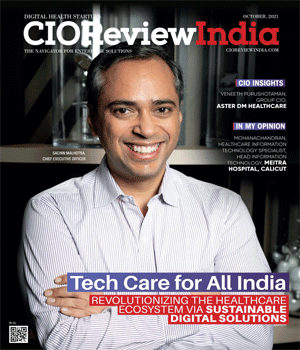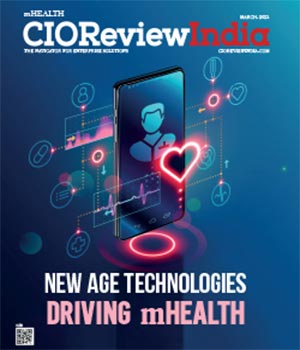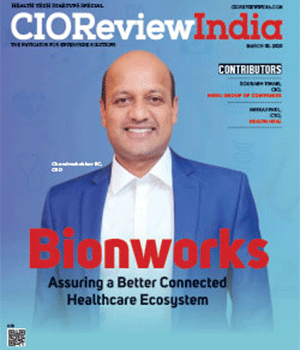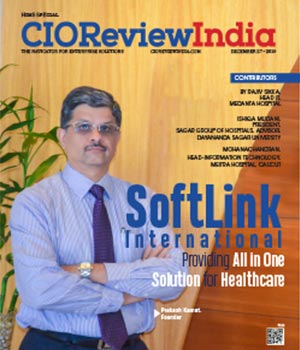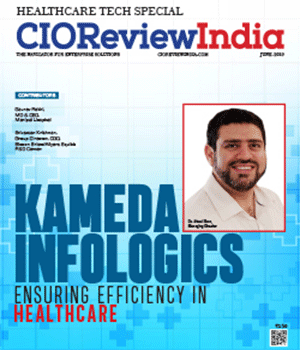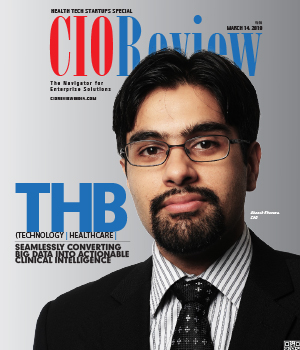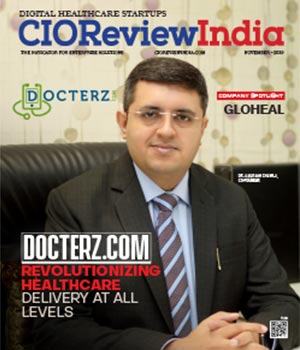
Digital Transformation in Pharmaceutical Manufacturing Operations
Joseph Kiran Kumar, Associate VP & Head IT, Eisai Pharmaceuticals India | Friday, 04 December 2020, 15:14 IST
 Digital Transformation (DX) has made enough headlines in the recent years and it only accelerated even more beginning of this year. Dx has either transformed the businesses or in the process of transforming them by replacing manual processes with digital processes or replacing older digital technology with newer digital technology.
Digital Transformation (DX) has made enough headlines in the recent years and it only accelerated even more beginning of this year. Dx has either transformed the businesses or in the process of transforming them by replacing manual processes with digital processes or replacing older digital technology with newer digital technology.
Digital transformation in Pharmaceutical Industry
The surge in digitally enabled diagnosis and treatment, value-based outcomes, increased regulatory collaboration, etc. reflect the way digital technologies are impacting the pharmaceutical industry. Niche and emerging areas such as Personalized Medicine, Wearables, and Digital Therapeutics are having a direct impact on the value chain. To embrace these opportunities and address the challenges, the industry needs to weigh the prospects of digital transformation and assimilating the available digital technologies can facilitate a successful transition
Digital enabled business model
Dx is steadily changing the business models across the pharma industry spectrum covering production, discovery and development, quality management etc. Also Dx seems to be answer to the efficient data management that the industry so much heavily relies upon both to meet the regulatory requirements and also as a means of competitive advantage. Pharmaceutical industry took little more time to decipher the Dx strategy whereas in other industries Dx strategy was not just implemented well but excellence was achieved. Companies contended that their systems, data and people weren’t ready. However, some have taken a leap into Dx and have begun experimenting with Industry 4.0 solutions. It is beyond doubt that Dx is all set to change the pharmaceutical industry dynamics as the industry recognizes the fact that the early adopters have a tremendous advantage and it would be even better if they have the right partners to foster the relationships that would bring in transformation. There are new age partners on the horizon who are experts in technology and innovation. These partners could be from academia, subject matter experts and niche vendors to realize their goals.
Challenges faced by Pharmaceutical Industry
· Developing new medicines that can cure (or prevent) today’s incurable diseases
· Rising Customer Expectations
· Stagnation in R&D Productivity
· Cultural issues of companies
· Affordability of medicines
Technology response to the Challenges
Technology has a vital role to play in addition to the efforts that are being made in Drug discovery and development, management of human resources, managing costs etc. Digital technologies such as Artificial Intelligence (AI), Big Data, Cloud Computing, Industrial Internet of Things (IIoT), Robotics, Blockchain, Cybersecurity, Wearables, etc. will serve as the enablers of the digital transition which would address some of the challenges mentioned above. Information and operation technology is the future as the lines are already blurred between the Information technology and operation technology. And this set would take up a much wider role within the complete framework an effective partnership would bring in lot of value to the companies by letting them manage their cash flows efficiently, utilization of their resources and a well drafted strategy that would help the companies to enter newer therapeutic areas with much lesser effort.
Digital technologies can help pharmaceutical manufacturing operations in many areas but not limited to the following:
Smart Manufacturing
Smart manufacturing technologies that go along with digital transformation, such as robotics, data analytics, artificial intelligence, and the industrial Internet of things (IIoT) have the capability of delivering greater efficiencies in manufacturing. There is plethora of things that smart manufacturing would achieve such as reducing the physical and the hazardous work that humans carry out today in the area of manufacturing. Robotics and advanced analytics play a vital role in the digital transformation.
Augmented Reality is bringing in impressive changes through digital transformation. AR is being successfully deployed in laboratory, on a manufacturing line, and or within cleanroom environments. AR enables users to collaborate across the manufacturing locations spread across countries in solving complex problems in production processes. AR gives a peek into probable scenarios and avoid non compliances and ensure continuous manufacturing.
AR would ‘augment’ the way users carry out their routine and bring out a wider perspective by allowing users to get more insights.
Combination of voice and images would make things more relatable as equipment is monitored and managed using a 3 dimensional AR and the ability to access them on the go ensures there is better view of the infrastructure in question.
Predictive Manufacturing
What pharmaceutical manufacturing needs is predictability of the possible output of the production processes. The essence of predictive manufacturing would in reviewing the huge quantities of the vast quantities of data generated from various systems and equipment. A close review of data would present new opportunities for solutions to improve manufacturing operations based on predictive manufacturing. Predictive manufacturing would help in optimizing the production processes to ensure greater efficiencies.
Outcome of Digital Transformation
Supply Continuity
Digital transformation would ensure that the supply of critical intermediate materials reaches the customers and the finished dosages reach the consumers on time so that there is no disruption to the continuity of the availability of the medicines. A digitally enabled operational excellence initiatives would bring in value to the customer by optimizing the costs thereby making the medicines more affordable.
Driving Business more efficiently
Data is the heart of every pharmaceutical organization and there is no doubt that quantum of data that is internally generated and its analysis would help companies take decisions.
With the advancements in the technologies especially in the area of AI can help companies get deeper insights into market dynamics and consumer behavioural intelligence. These are the key in driving the strategic business decision making process.
Cost Management
The pharmaceutical industry is under severe pressure to reduce the manufacturing costs, focus on the outcomes and making the medicines more affordable. The adoption of digital technologies and the business models driven by digital can assist pharma industry in addressing these challenges and help the companies manage both their revenues and profitability more efficiently
Conclusion
In the pharmacy industry digitization is being leveraged in manufacturing, designing, analysis and for regulatory submissions. There is scope for digital transformation solutions can change the game for pharmaceutical companies in all the aspects by getting digital strategies in right place. Pharmaceutical Industry has to learn important lessons from other industries include developing a digital transformation agenda; ensuring the projects are shared across the organization. Industry should understand that the elixir for successful digital transformation has few important ingredients as part of the robust vision; these include developing the culture and mind set, updating the organizational structure, governance to meet the objectives, attracting and developing talent, and maintaining a growth perspective.
CIO Viewpoint
Integrating New Technologies to Optimize...
By Abhrasnata Das
Quantum Shift in Healthcare Driven by...
By Abhrasnata Das
Product Adoption: Realizing The Real Value
By Ashish Pandey, CIO, GSK Consumer Healthcare India
CXO Insights
HIT Promotional Products: Fostering Empowerment...
By Eric Shonebarger, President & Lori Thibado, Director of Order Entry & Art
Addressing the Data Management Challenges in...
By Richa Singh
Elevating Patient Experience with Remote...


